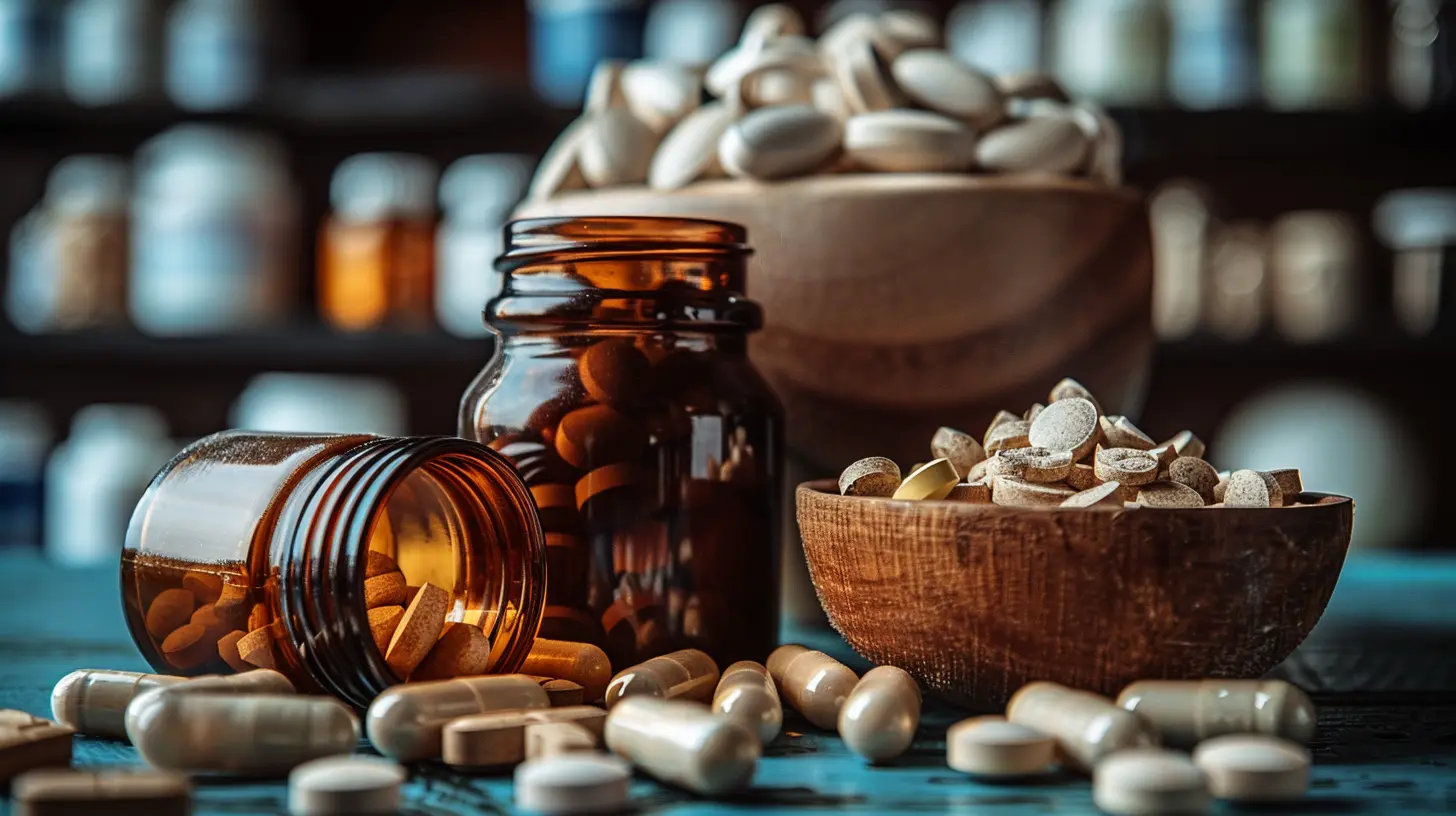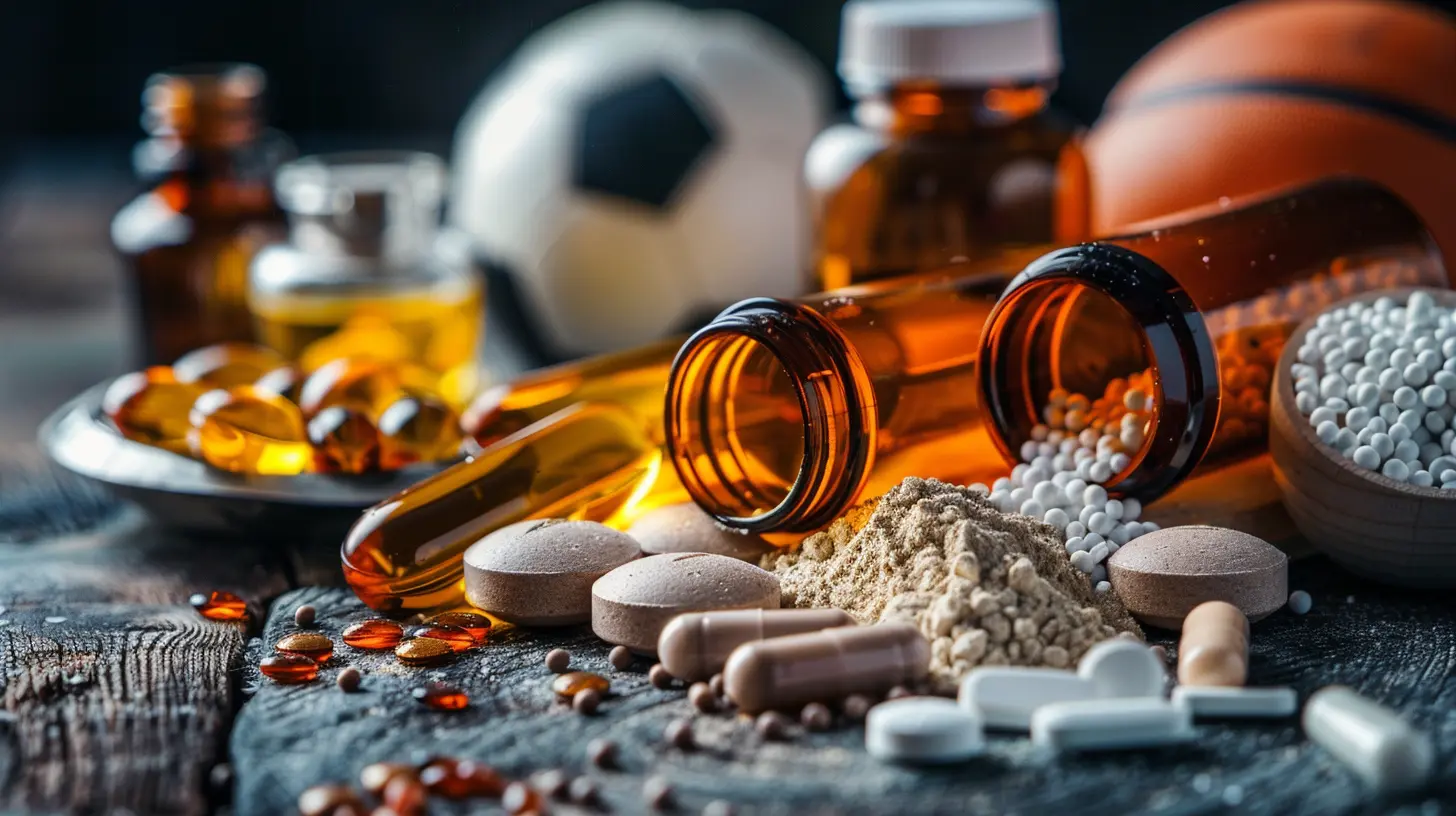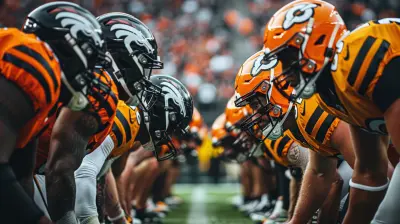Sports Supplements: Separating Science from Hype
3 November 2025
Alright, let’s face it — the world of sports supplements is a jungle. A flashy, bold-font, neon-colored jungle with more promises than a political campaign. “Build muscle fast!” “Shred fat in 3 days!” “Become the next superhero — just one scoop a day!” Sound familiar? Yep, we’ve all been there, eyeing that overpriced tub of mysterious powder and wondering, “Is this the magic potion I’ve been missing?”
Well, before you throw your wallet (and hopes) at the latest miracle mix, let’s put on our science hats (seriously, they're party hats with graphs on them) and dive into what’s fact, what’s fluff, and what just might turn your $80 protein powder into the world’s most expensive disappointment.

The Supplement Circus: Why We're All Hooked
Let’s be honest — we all want shortcuts. And in fitness? We really want shortcuts.Who wouldn’t want to skip months of grueling deadlifts and jump straight to looking like a Greek statue? Enter sports supplements, promising everything from Popeye-like strength to six-pack abs that can slice bread. Spoiler alert: most of them are about as effective as shouting at your biceps to grow.

The Heavy Hitters: Do They Actually Work?
Now, not all supplements are total nonsense. Some have actual science behind them (yes, real scientists in lab coats and everything). Let’s break down the big dogs and see who’s legit and who’s just flexing hot air.1. Protein Powder – The OG Bro Fuel
Verdict: Totally legit (but not magic)Protein powders are basically the Beyoncé of supplements. Whey, casein, plant-based — you’ve got options. They help you hit your protein goals, especially if you don’t feel like eating your bodyweight in chicken breasts.
But here’s the deal: if you’re already getting enough protein from food, adding more won’t turn you into The Hulk overnight. Seriously, it’s not fairy dust.
> Think of it this way: protein powder is like a blender. Handy? Absolutely. But you still need the ingredients (aka a good diet and gym hustle) to make the smoothie.
2. Creatine – The Real MVP
Verdict: Backed by a mountain of scienceIf you’re looking for a supplement that’s actually worth your money, creatine is your guy. It’s one of the most researched supplements out there, and spoiler — it actually works.
It helps with strength, muscle mass, and even has potential brain benefits. Plus, it’s dirt cheap. We’re talking less than your morning coffee kind of cheap.
> Just don’t expect it to make you jacked in a week. It’s a slow burn, like a Netflix drama, not a TikTok trend.
3. Pre-Workout – Energy or Jitter Juice?
Verdict: Mixed bag of madnessPre-workouts are like that unpredictable friend who’s either the life of the party or makes you question your life choices. Sure, they’ll give you a wild energy boost, but at what cost? Jitters, crashes, bathroom emergencies — it’s a gamble.
Often loaded with caffeine, mystery stimulants, and flavors that scream “radioactive fruit punch,” they can help push through a tough workout. But do you need them? Nah. A cup of coffee works just fine, and it won’t make you feel like you’re vibrating through dimensions.
4. BCAAs – The Overhyped Trio
Verdict: Mostly unnecessary for most peopleBCAAs (branched-chain amino acids) are like the Kardashians of supplements — super popular, but no one can really explain why they’re famous.
If you’re eating enough protein (and you probably are if you’re taking workouts seriously), you’re getting all the BCAAs you need. So unless you’re training fasted or running ultramarathons, this one’s probably just fancy-flavored water.
> Want to waste money with style? BCAAs are your sparkling water with extra marketing.
5. Fat Burners – The Biggest Scam on the Shelf
Verdict: Run. Far. Fast.If fat burners actually worked like they claimed, the obesity epidemic would be solved, and we’d all have abs sharp enough to cut glass. But alas, most of these products are glorified caffeine pills (again), with a dash of fancy herbs that do next to nothing.
Yes, they might make you sweat and feel like you’re doing something, but actual fat loss still comes down to — wait for it — diet and exercise. Mind blown, right?

The Science vs. Hype Smackdown
So how do these supplements get away with outrageous claims?1. Loopholes & Marketing Magic
Supplement companies don’t need FDA approval before releasing products. That’s right — it’s like the wild west out there. They can say things like “supports muscle growth” or “boosts fat metabolism,” which technically means nothing.Add in a few jacked models, some fancy buzzwords, and boom — you’ve got a million-dollar product.
2. The Placebo Effect Is Real
Ever noticed how you feel stronger just because you believe that pre-workout is working? That’s the placebo effect, baby — and it’s powerful. If spending $50 on powder makes you train harder, maybe it’s worth it?Just don’t confuse "I’m working harder" with "this powder is magic."

Natural Alternatives… Gasp! They Exist!
Before you sink your paycheck into powdered promises, here are some old-school (but effective) strategies that don’t require a Amazon Prime membership.- Real Food
Wild idea, I know. Lean meats, eggs, dairy, legumes — all packed with protein, nutrients, and none of the chemical aftertaste. And your wallet will thank you.- Sleep
Yeah, yeah, not sexy. But getting enough sleep is crucial for recovery, muscle growth, and performance. You can take all the supplements in the world, but if you’re running on 4 hours of sleep, you’re basically building a house on quicksand.- Hydration
Dehydrated muscles don’t perform well. Period. Chug that water like it's pre-workout. (Bonus: it won’t make your heart race or your skin tingle.)The Supplement Industry: A Billion-Dollar Game of Hype
Let’s zoom out for a sec. The global sports supplement industry is worth over $40 billion. That’s "buy an island and name it Creatineland" money.With that much cash at stake, it’s no surprise that companies are willing to shove out half-tested products just to follow trends. Every few months there’s a new "breakthrough" ingredient that promises to change the game. Spoiler: it usually doesn’t.
How to Be a Smart Shopper (i.e., Not Get Scammed)
If you still feel like supplements might help your goals (and some can), here’s how to avoid turning your gym bag into a garbage bin of regret:- Read the labels – If it reads like a chemistry exam, maybe pass.
- Look for 3rd-party testing – NSF, Informed-Sport, etc. These logos mean someone actually checked what’s in the bottle.
- Don’t buy into hype – Abs weren’t built in a day and they definitely weren’t built by a pill.
- Research ingredients – Don’t trust the label alone. A quick search can tell you what’s legit and what’s snake oil.
The Final Scoop (Pun Totally Intended)
Supplements aren’t evil. They’re not all scams. And they’re not all miracle workers. Like seasoning on a good meal, they can enhance what you’re already doing — but they aren’t the meal itself.You want results? Here’s the real secret formula:
> Good nutrition + consistent training + sleep + hydration + patience = progress.
Supplements? They're optional sprinkles on the fitness cupcake.
So the next time you’re tempted by a neon-tub screaming “GAINZ IN A WEEK,” remember to check the facts, not just the font size. Build your fitness like you’d build anything that lasts — with a solid foundation, and maybe (just maybe) a scoop of protein now and then.
all images in this post were generated using AI tools
Category:
Sports ScienceAuthor:

Frankie Bailey
Discussion
rate this article
1 comments
Octavia McCullough
In a pursuit where performance often shadows ethics, discerning the true value of sports supplements requires critical scrutiny—balancing scientific evidence against the allure of quick gains and market-driven hype.
November 8, 2025 at 4:59 AM

Frankie Bailey
Thank you for your insightful comment! Striking that balance between ethics, science, and market trends is indeed crucial for making informed choices in sports supplementation.


